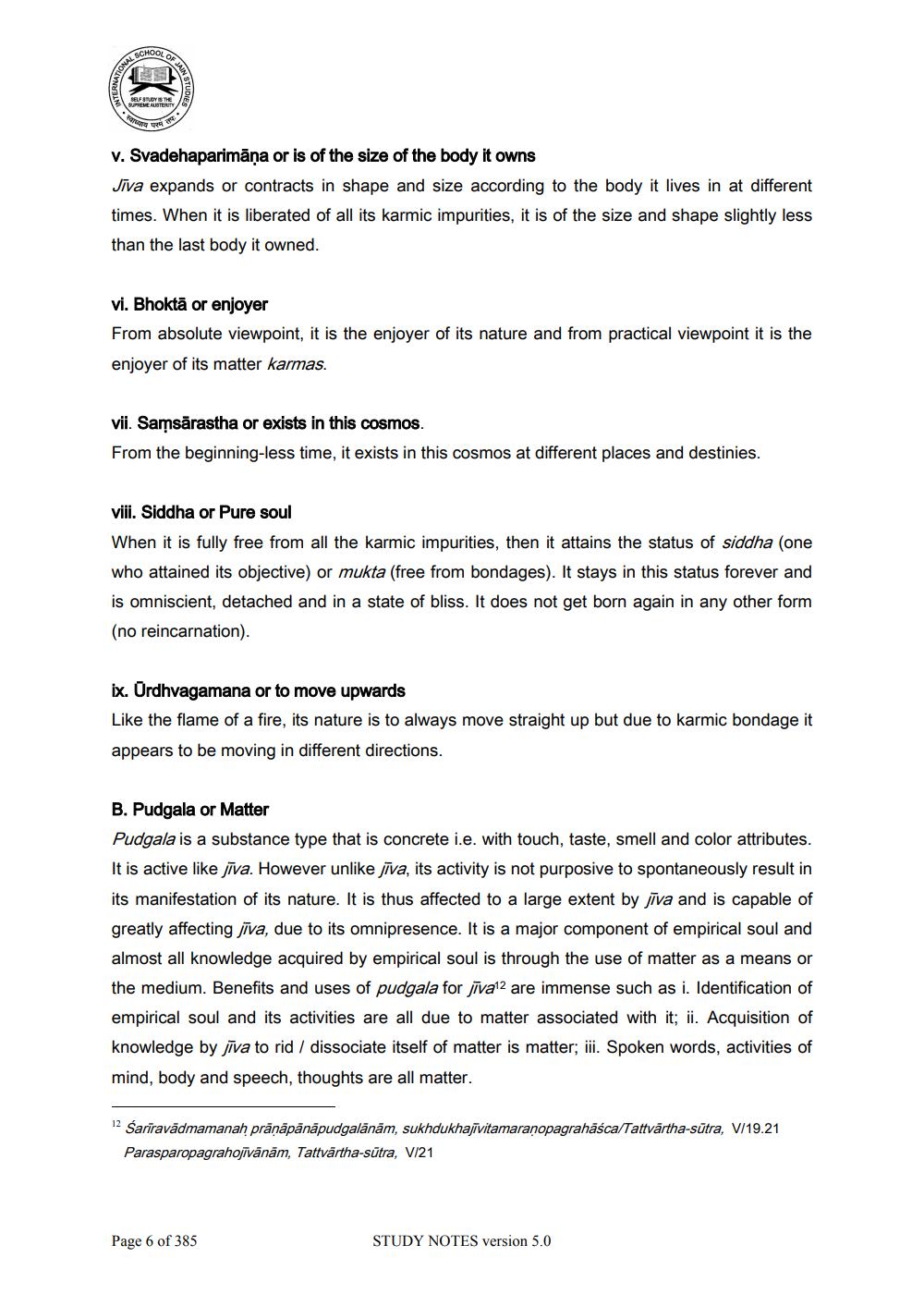________________
v. Svadehaparimāņa or is of the size of the body it owns Jīva expands or contracts in shape and size according to the body it lives in at different times. When it is liberated of all its karmic impurities, it is of the size and shape slightly less than the last body it owned.
vi. Bhoktā or enjoyer From absolute viewpoint, it is the enjoyer of its nature and from practical viewpoint it is the enjoyer of its matter karmas.
vii. Samsārastha or exists in this cosmos. From the beginning-less time, it exists in this cosmos at different places and destinies.
viii. Siddha or Pure soul When it is fully free from all the karmic impurities, then it attains the status of siddha (one who attained its objective) or mukta (free from bondages). It stays in this status forever and is omniscient, detached and in a state of bliss. It does not get born again in any other form (no reincarnation).
ix. Ordhvagamana or to move upwards Like the flame of a fire, its nature is to always move straight up but due to karmic bondage it appears to be moving in different directions.
B. Pudgala or Matter Pudgala is a substance type that is concrete i.e. with touch, taste, smell and color attributes. It is active like jīva. However unlike jīva, its activity is not purposive to spontaneously result in its manifestation of its nature. It is thus affected to a large extent by jīva and is capable of greatly affecting jīva, due to its omnipresence. It is a major component of empirical soul and almost all knowledge acquired by empirical soul is through the use of matter as a means or the medium. Benefits and uses of pudgala for jīvat2 are immense such as i. Identification of empirical soul and its activities are all due to matter associated with it; ii. Acquisition of knowledge by jīva to rid / dissociate itself of matter is matter; iii. Spoken words, activities of mind, body and speech, thoughts are all matter.
12 Sarīravādmamanah prānāpānāpudgalānām, sukhdukhajīvitamaranopagrahāśca/Tattvartha-sútra, V/19.21
Parasparopagrahojivānām, Tattvärtha-sutra, V/21
Page 6 of 385
STUDY NOTES version 5.0




